If you raise chickens, no doubt you’ve noticed their egg production is cyclical. You either have too many eggs or…you have none.
When the egg production slows down, it’s usually in winter right when running a warm oven to bake cakes, breads, and cookies sounds most appealing.
But if you learn how to water glass eggs, you can look forward to cozy winter afternoons baking yummy treats with farm fresh eggs … and winter evenings overeating the same. 😉
What Is “Water-Glassing” Eggs?
Water glassing is the only way I know of to preserve eggs so they’re shelf stable and, unlike freezing or freeze-drying, can still be used just like fresh eggs when you need them.
Most people, especially those who rely on grocery store eggs, have never heard of this egg preservation method. Likely because it can’t be done with eggs that have been readied for commercial sale.
Water glassing eggs is only appropriate for newly-collected, unwashed eggs.
The process involves soaking fresh eggs in a lime/water solution to seal the micropores in their shells. This keeps bacteria out and moisture in.
If you raise backyard chickens with an egg supply that ebbs and flows, it’s an easy—almost foolproof—way to ensure plenty of fresh eggs in the cupboard even when our ladies are taking a break from laying.
Why We Prefer to Use Hydrated Lime
Intrigued yet? It is exciting, but don’t run out to the garden center and grab a big bag of garden lime.
The type of lime used for water glassing eggs is critical.
The last thing you want to do is attempt water glassing with lime that you’d use in your garden, which is known as calcium carbonate. Garden lime is not even technically lime. It’s simply crushed limestone, and it won’t work to preserve your eggs.
To preserve eggs with lime the right way, there are two types you can choose from:
- Hydrated lime (calcium hydroxide)
- Sodium silicate (rarely used in modern times)
Hydrated lime—also known as slaked lime or pickling lime—is readily accessible, cost-effective, and safer to work with than sodium silicate.
Prices pulled from the Amazon Product Advertising API on:
Product prices and availability are accurate as of the date/time indicated and are subject to change. Any price and availability information displayed on [relevant Amazon Site(s), as applicable] at the time of purchase will apply to the purchase of this product.
Not to mention, egg whites preserved with hydrated lime can be whipped, whereas those stored in sodium silicate cannot.
So, although the term water glassing actually stems from the original use of sodium silicate (called “water glass” because it dries into a clear solid), we prefer to use hydrated lime. You can buy it at just about any grocery store under the name pickling lime.
Wait … “pickling lime?” Does that mean I’ll end up with a jar of pickled eggs?
No. If you’re like my husband, who won’t get within a mile of a pickled egg, don’t worry. Pickling lime is used to pickle vegetables, but soaking your eggs in pickling lime and water won’t pickle them.
After all, I promised you cookie-worthy eggs, didn’t I?
How to Water Glass Eggs with Lime
Okay, so let’s talk about how to preserve eggs in lime water.
Honestly, the process could not be easier! Just be sure to water glass fresh eggs ONLY because this method 100% WILL NOT WORK with eggs you buy at the store.
To water glass the latest offerings from your flock, start with clean nesting boxes. This is vital because the eggs need to be clean, but you can’t wash them.
Why, you ask?
Because washing them removes the protective covering, called the “bloom,” and leaves them vulnerable to all sorts of bacteria just dying to infiltrate the shell.
Once you have a source of clean, fresh eggs, mix up a batch of lime water in a sanitized bucket, jar, or other food-safe container. Ratios are provided in the section below.
I prefer smaller buckets as it’s more convenient to reach in and retrieve the oldest eggs first.
Then, as you gather eggs, check them for cracks and dirt. Candling isn’t required, but it’s a smart idea since a crack in one egg can ruin a whole bucketful.
(Candling involves going into a dark room and holding a flash light under the egg to illuminate any cracks.)
Gently and carefully add only the clean, uncracked eggs to the bucket pointy-side-down. Try to get them into the lime water the day they come out of the chicken, if at all possible, since that makes for the freshest eggs.
There’s no need to save them up and add them all at once. It’s perfectly fine to add a few at a time as you gather them. Just be sure to keep a couple of inches of water at the top of the bucket to ensure the eggs are completely submerged.
Cover the container to keep bugs and animals out and to keep the water from evaporating. The less oxygen that enters, the better, but the main reason to cover it is evaporation.
Store the container out of direct sunlight and where it won’t freeze and ruin the eggs. Then when you need a few eggs, remove what you need and recover the bucket.
Why the Ratio of Pickling Lime to Water Is So Important
When mixing up your lime water, use a ratio of 1 ounce (about 2 heaping tablespoons if you don’t have a scale) to 1 quart of room temperature, chlorine-free water.
It’s best to weigh the lime on a scale to be sure you’re using enough, since the water needs to be completely saturated for it to be effective.
Thoroughly mix in the pickling lime before adding the first eggs, but don’t worry if it settles over time. This is normal. Don’t attempt to mix it back in—there’s no need, and the mixing may crack an egg.
Remember, cracked shells are a no-no!
FREE FOOD STORAGE PLAN!
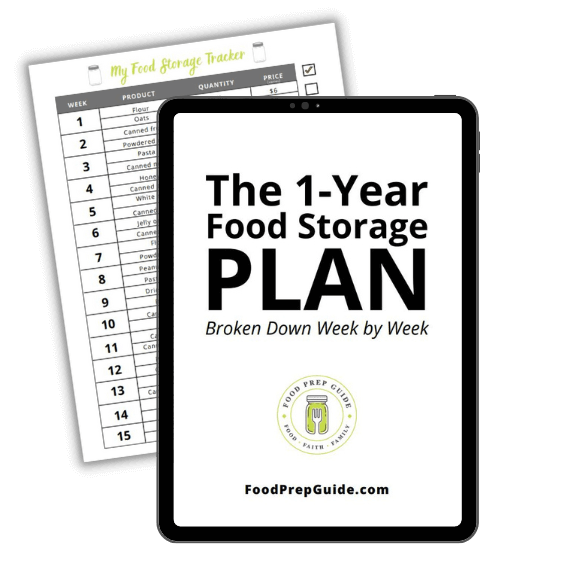
Does gathering and storing a year’s worth of food for your family seem overwhelming and unachievable?
Make it easy with our step-by-step plan. Subscribe to our weekly newsletter & we’ll send it to you FREE!
Tips for Using Water Glassed Eggs
- When storing your water glassed eggs, start the process with the container in its ultimate resting spot, since we don’t recommend moving it once you add the eggs.
- Water glassed eggs can be used exactly the same way as fresh eggs in most cooking, baking, etc. However, don’t use water glassed eggs for boiled eggs.
- Eggs preserved this way can typically be stored 8-12 months. However, use your senses to ensure they look and smell okay. There’s always the chance for an egg to go bad.
- Be very careful to wash all the lime water from the outsides of the eggs before cracking them. The lime can curdle the eggs and make them inedible.
- Best practice when using water glassed eggs, or any eggs in fact, is to crack each egg in a bowl before adding it to your recipe or the skillet. You can also do the bad egg test by seeing if they float in water. If they do, toss them.
Can You Water Glass Store-Bought Eggs?
You absolutely cannot water glass eggs from the store, at least not in the United States. Commercially available eggs in the U.S. must be washed, pasteurized, and sanitized.
This makes sense, since they’re being handled so much before going to market—often not arriving at the store until a few weeks after they’re collected. But this removes the bloom, which is the coating that’s vital to the success of the water glassing process.
How Fresh Do Eggs Need To Be To Water Glassed?
The ideal eggs to water glass are those laid fresh that day. However, eggs that are a few days old can still be water glassed. Their texture may not be quite as perfect when eaten later, but they can still be safely preserved.
How Long Do Water-Glassed Eggs Last?
In general, water-glassed eggs can remain fresh and tasty with no refrigeration for 8-12 months. After 12 months, they should still be safe to eat, but the taste and texture may start to degrade.
While it’s usually okay to keep the eggs in the lime solution for a year or more (some report storing them up to two years—including me!), the taste and texture may begin to change at the 8-month mark.
If you’re only storing spring eggs for the following winter, though, this shouldn’t be a problem.
My Accidental Experiment with 18-Month-Old Waterglassed Eggs
As every proud new owner of hens quickly discovers, springtime chickens can overflow your counters with fresh eggs FAST.
By waterglassing eggs during times of extreme production, you can keep from buying blah grocery store eggs all winter long.
And you know what that means … brownies and cookies to enjoy with your cocoa on all those cold winter nights!
Print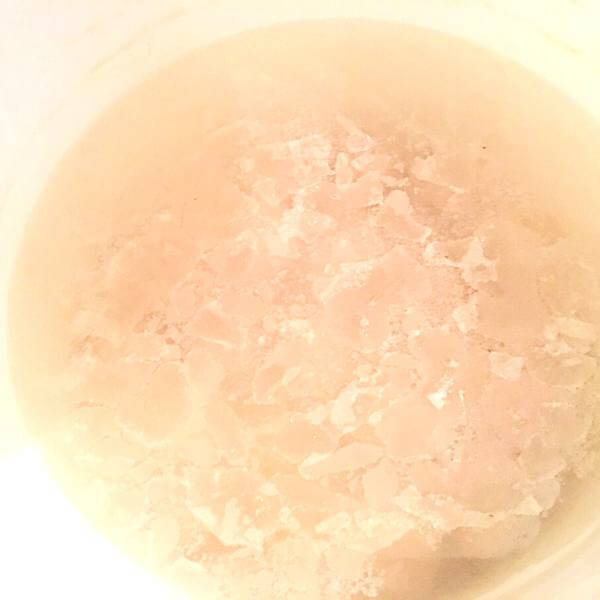
Water Glassing Eggs
Once you learn how to water glass eggs, you can finally take advantage of the bounty from your hens … and have fresh-tasting eggs for use all year! (Image shows what the lime water looks like on top.)
- Total Time: 10 minutes
- Yield: 12–15 eggs 1x
Ingredients
- A clean half-gallon, food-safe container with lid or plastic wrap to cover
- Gloves
- A wire whisk for mixing (if you don’t want to just shake the jar)
- 1 quart dechlorinated water
- 1 ounce of hydrated lime (usually sold as pickling lime)
- Clean but unwashed, unwiped eggs straight from the nest (Note: You don’t need all 12-15 collected before beginning. They can be added one at a time as gathered later).
Instructions
- Thoroughly mix the water and lime in the container either by whisking or shaking well. The water should be milky white when fully saturated.
- Wearing gloves (to protect your hands from the lime solution, which can be drying), carefully add eggs as you gather them, replacing the lid each time to avoid evaporation.
- Once the jar is full with 2 inches of lime water covering the topmost eggs, label it and store it for 8-12 months where it won’t be in direct sunlight or at risk of freezing. Keep a slotted ladle or gloves nearby so you can easily remove the eggs when you need them.
- Periodically check to be sure the water is still covering the eggs.
- When ready to use, remove the water glassed eggs very gently to avoid cracking the ones still in the container. Rinse each egg thoroughly to remove the lime. Use it the same as you would fresh, but don’t boil.
Notes
Don't use aluminum anywhere in the process as it can react with the lime water.
- Prep Time: 10 minutes
- Additional Time: 0 hours
- Cook Time: 0 hours


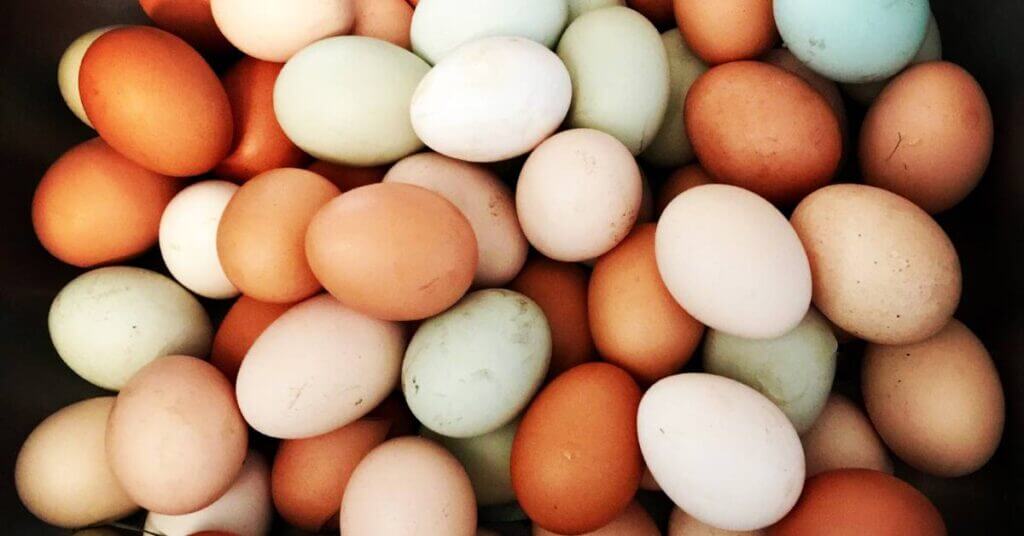

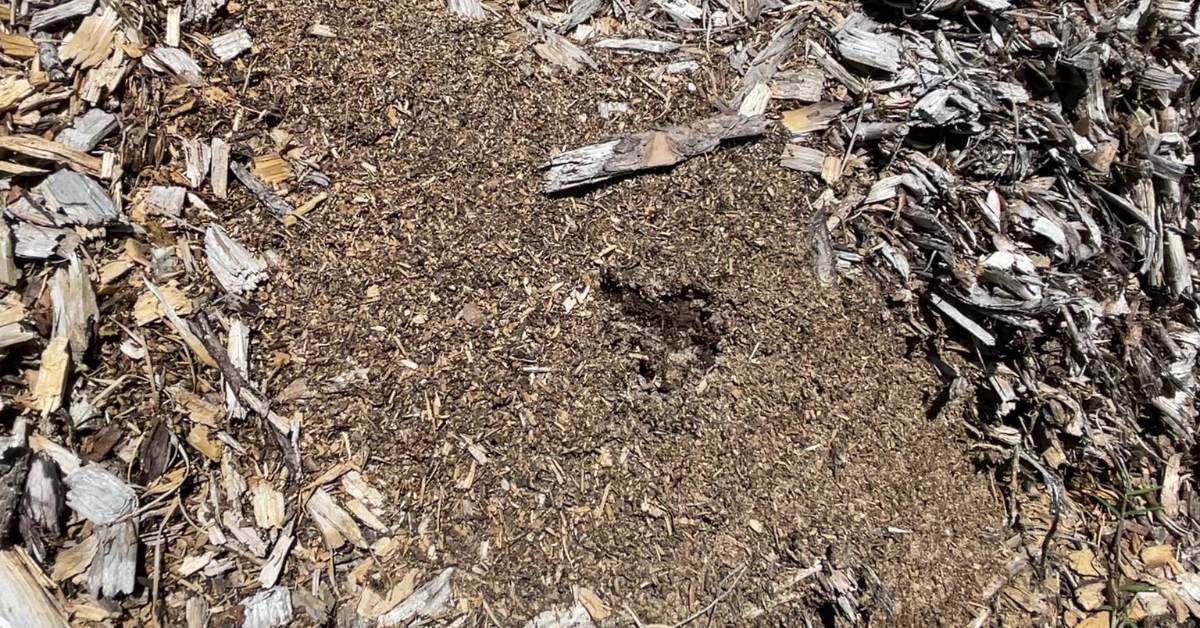




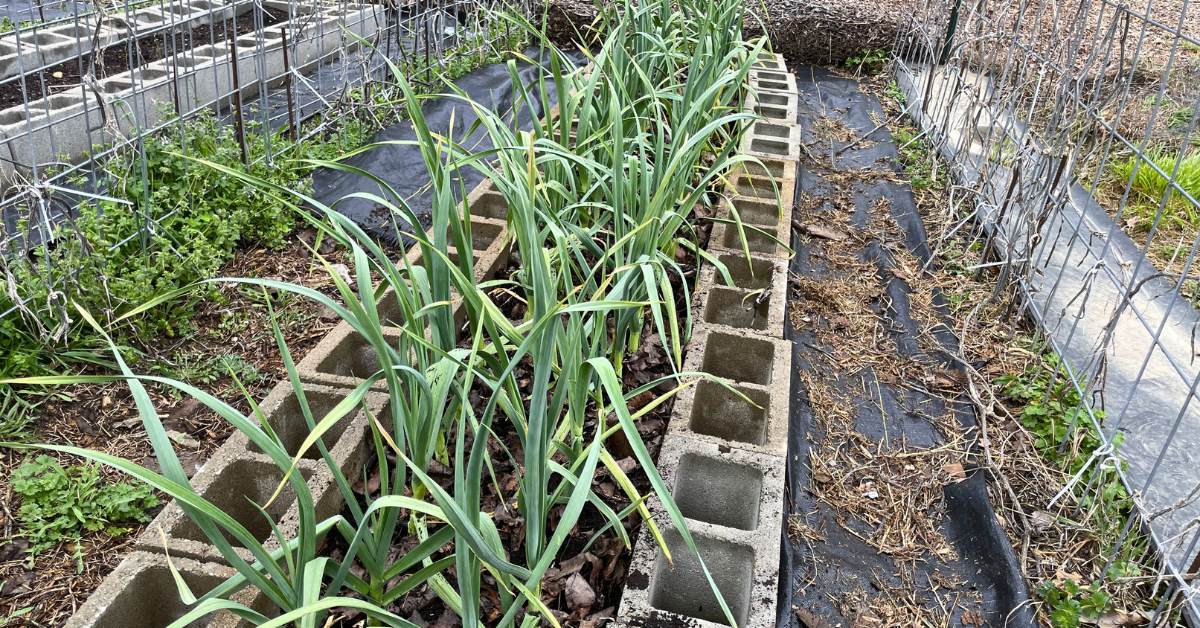
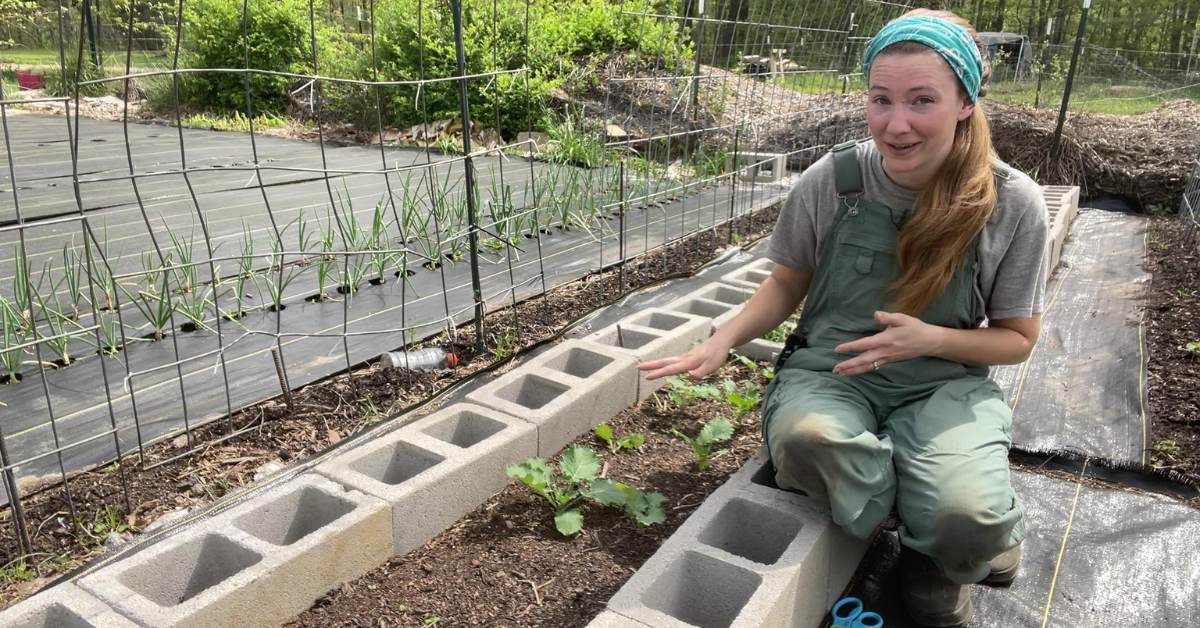
Thank you for this article and making the instructions easy to print.
I got me first chickens where I live now. Water glassing them will be a great advantage for myself in the cold months. Did my first water glassing today. Look forward to use them later on. Thanks so much for your information.
Chickens are so fun. I hope you have a blast with them, and enjoy their bounty!
My friend is so sweet to give me fresh eggs. She dose not wash them but stores them in a refrigerator after collecting. Can these be used for water glassing?
That’s a great question! I don’t have a definitive answer as I’ve never used refrigerated eggs for water glassing. Two thoughts come to mind:
1. The bloom on the egg must be fully intact, and the only way I know to ensure that (since it’s not really something we can see) is to take it straight from the backyard and into the lime water.
2. Once an egg is refrigerated, I’ve always believed it needs to stay refrigerated. (But I don’t have any “science” to back that up.)